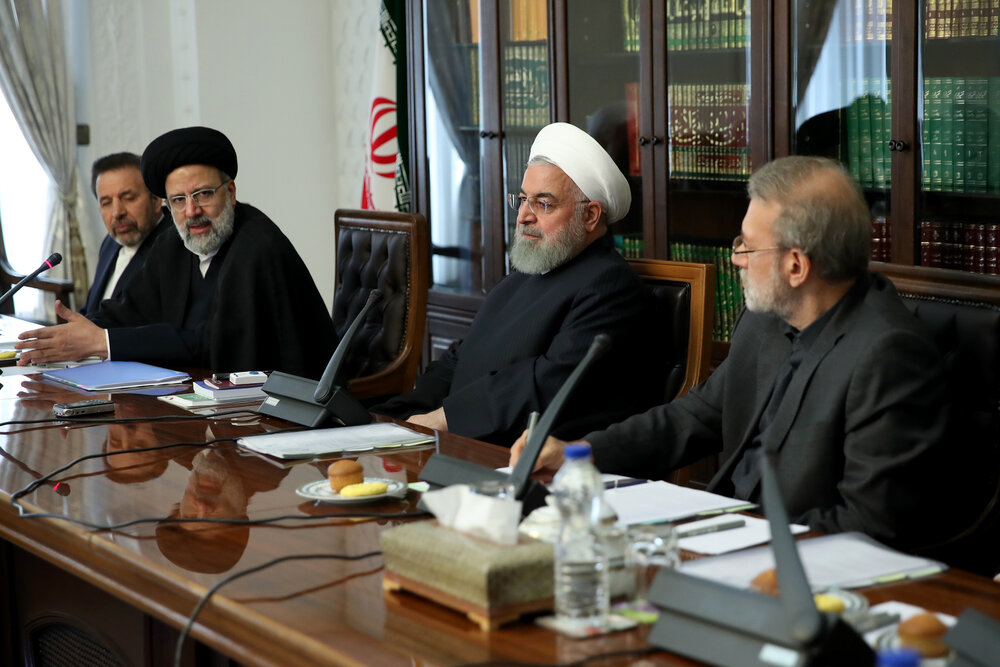Iranian central bank given more authority to control foreign currency market

TEHRAN – Heads of the three branches of government attended the 39th session of the Supreme Council of Economic Coordination on Saturday, agreeing to give more authority to the Central Bank of Iran to control the foreign currency market.
President Hassan Rouhani, Majlis Speaker Ali Larijani and Judiciary Chief Ebrahim Raeisi also discussed coordination among the branches of government in line with managing the country under the sanctions.
The previous session of the council was held on August 31 during which regulations to implement oil projects were approved.
In a session of the council on August 10, Rouhani said that solving people’s problems must be the main objective of policymaking and decision-making.
With an indirect reference to the reimposition of sanctions on Iran by the Trump administration, the president said, “Both the people and the government have passed difficult times, however, decisions can be taken in line with economic stability and progress and the people’s prosperity.”
Last year, the Trump administration abandoned the 2015 nuclear deal and restored old sanctions and ordered new harsh ones. The move resulted in a great devaluation of national currency and high price rises. However, nearly after a year the economy is stabilizing.
Rouhani said his administration is making efforts to resolve the people’s economic problems.
To counter the effects of sanctions, the government is taking compensatory measures.
During a session of the council on July 27, four strategies to compensate for budget deficit were approved.
Transferring government’s assets, using forex reserves, selling Islamic bonds, and withdrawing 450 trillion rials (about $10.714 billion) from National Development Fund (NDF) were the four strategies approved in that session.
During a session of the council on July 13, the amendments to the national budget plan for the current calendar year (started on March 21) were approved.
The generalities of a modified budget plan, which has been restructured in line with the country’s “resistance economy”, were approved.
The modifications consist of four major parts, which are “sustainable revenue resources”, “effective expenditure”, “promoting stability, development and justice” as well as “fundamental modifications of budgetary system”.
They are aimed at reducing the country’s dependence on oil money and promoting economic stability under the umbrella term “resistance economy” ordered by Supreme Leader of the Islamic Revolution Ayatollah Ali Khamenei.
It was decided in that session that the council would study the priorities in the amendment plan in its next gathering.
NA/PA
Leave a Comment